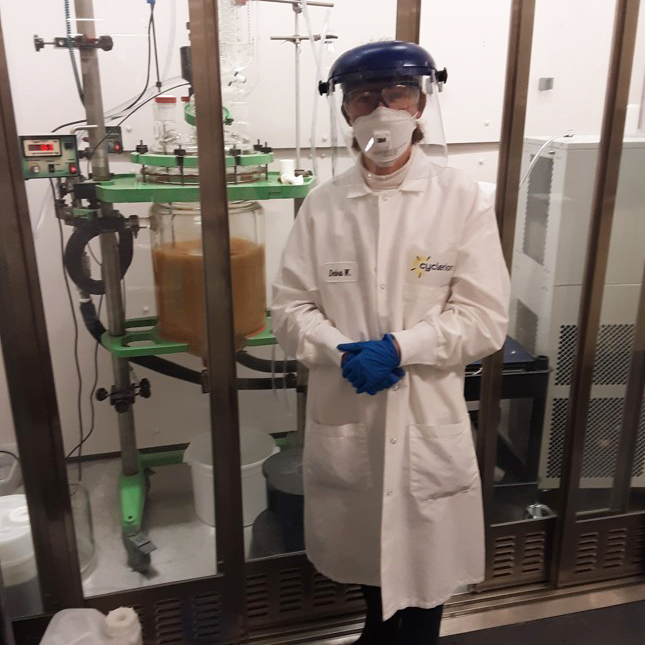International Day of Women and Girls in Science Q&A - Dr Debra Wallace
Dr Debra Wallace (1988) read Natural Sciences at Pembroke, and stayed on to do a PhD in Chemistry, graduating in 1995.
What inspired you to study a STEM degree at university?
I was fortunate to have two excellent chemistry teachers for both my O level and A level studies at school. While I enjoyed all sciences the enthusiasm of these two teachers for chemistry which really inspired me to choose that as my primary subject for university.
Why did you want to stay on to study for a PhD?
I completed my PhD in organic chemistry at Cambridge, working with Professor Ian Paterson who is still a member of the chemistry department at Cambridge now.
In my final year as an undergraduate, I undertook a 12-week research project as part of the part II chemistry syllabus. This was the first time I worked in a laboratory on a speculative project, where I did not know if the reactions would work or what the results would be - most undergraduate practical experiments are tried and tested. After a few weeks of work to build up to the key new experiment, the excitement of carrying it out and finding out it did indeed work, and that I had done a new and novel reaction immediately made me realize that I wanted to continue with research with a PhD.
What do you love most about your subject?
Chemistry is a fascinating subject in its own right, I am always asking myself will my new experiment work, if not why not, and how do I fix it? But in addition to this, as a chemist working in the pharmaceutical industry I am actively involved with the discovery and development of potential new medicines, so I know I am contributing to science which will hopefully have a positive impact on human health and quality of life.
What is your current job, and what was your route into it?
I work as a "Process Chemist" in the pharmaceutical industry and I started after completion of my PhD and a couple of years doing postdoctoral research. I spent over 18 years at a very large company with time spent in both the UK and the US, but more recently have been at a smaller biotechnology company. The majority of chemists in my area have PhDs in a branch of organic chemistry. The day to day work I do is varied depending on the stage of the project I am on, however I still love to be involved with hands-on experimentation where possible.
What advice would you give other women in STEM?
Anyone can do anything they set their mind to!
Finally, do you have a female STEM hero?
I greatly admire Professor Frances Arnold who won the 2018 Nobel Prize in Chemistry for her work on the use of directed evolution to engineer enzymes and now serves as an external co-chair for President Joe Biden's Council of Advisors on Science and Technology I attended a lecture by Professor Arnold shortly before the announcement of the Nobel Prize and her ability to describe her work to non-specialists was wonderful.

